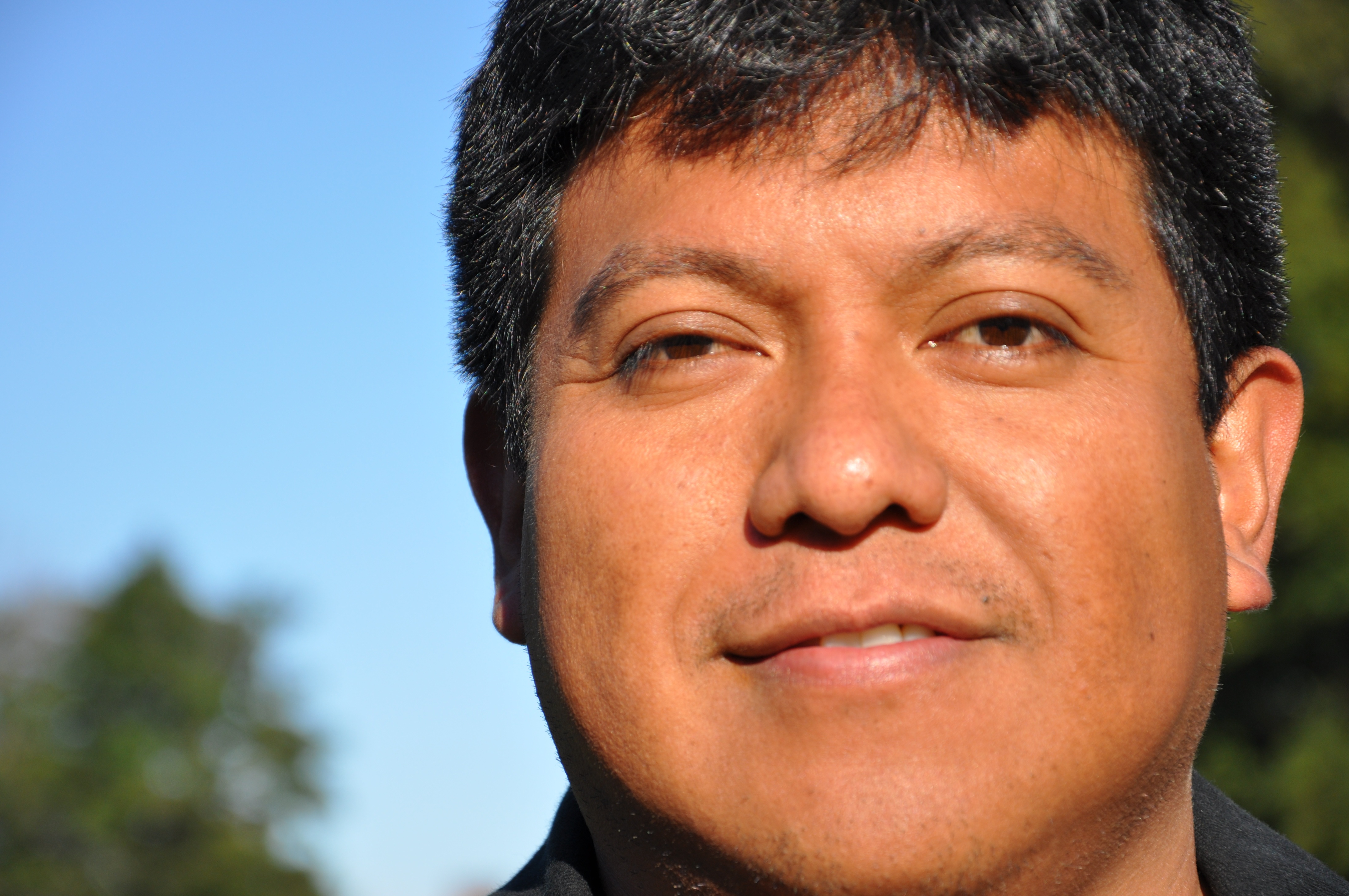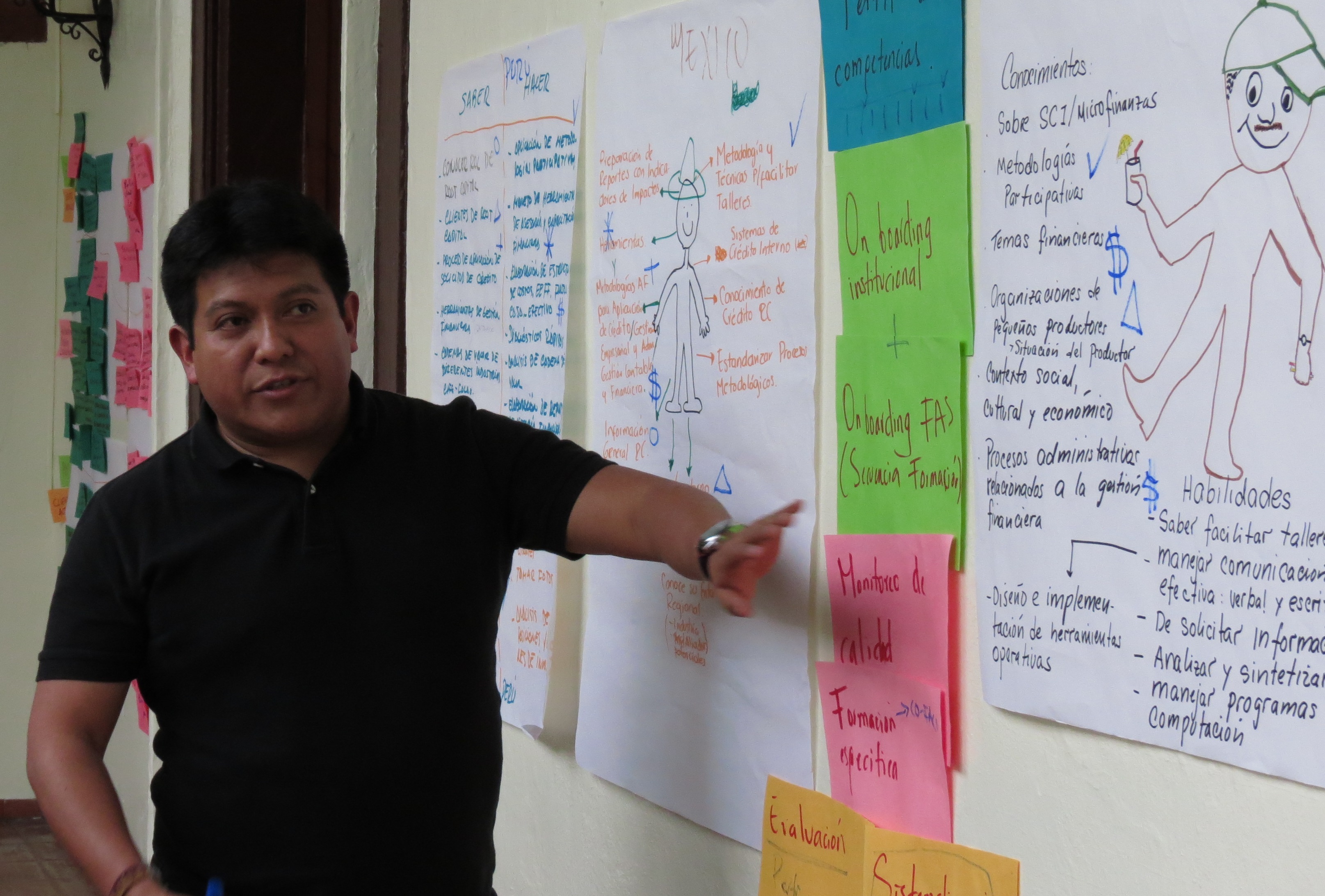
Half the Sky. Gender-lens investing. HeforShe. Lean In.
Over the last several years, women’s economic empowerment has become a prevalent theme among journalists, international development practitioners, investors, and global companies alike.
While mainstream interest in these issues has only recently piqued, Chiapas-based David Lozano, Root Capital’s Financial Advisory Services Coordinator for Mexico, has spent the last 20 years exploring gender inequality and its impact on individuals, families, and communities throughout the country.
When he was seven years old, David and his mother moved from Mexico City to Chiapas, where, inspired by liberation theology that had taken root in Latin America, he quickly devoted himself to helping solve deep-seated social inequities facing the poor and disenfranchised. For five years, he volunteered in poor rural villages; later, during the Guatemalan Civil War, he taught a group of teachers at Guatemalan refugee camps in Southern Mexico.
It was in these refugee camps that David was introduced to gender-inclusive pedagogy – learnings from which helped shape his interest in gender issues and informed the course of his career. But during a time when the movement for gender equality was led largely by women for women, David took the path less traveled, turning his attention to men.
In 1997, together with 10 others, David started a group called “Colectivo La Puerta Negra” – The Black Door Collective, in English – to create a space where Mexican men could reflect on their own masculinity through workshops, theater, and radio programs on themes like identity, violence, fatherhood, and men’s health. Nearly 20 years later, the Colectivo La Puerta Negra is still in full force, and David is at the helm.
“Men have a strong role to play,” says David. “Our work inspires men to start asking themselves, ‘What kind of father, what kind of husband have I been?’ Living up to the masculine ideal has its costs, and self-awareness is a big step in the journey towards progress.”
In Mexico, David expounds, there’s a near-constant pressure for men to prove their masculinity. “There’s the common perception that being aggressive makes you ‘more of a man,’ that not showing affection makes you ‘more of a man,’ that laughing at sexist jokes makes you ‘more of a man,’” he says. “I’ve spent a lot of time trying to show that men can change, become responsible parents and partners, and help reduce inequality and lack of opportunities for women. The potential for that change – no matter how small – in this generation and the next, is what drew me to this work and what inspires me every day.”
Twenty years ago when the Colectivo La Puerta Negra first started, very few men were interested in women’s issues. Still, though he sees more and more men engaging in health, human rights, and development issues affecting women, David laments that an explicit focus on women has been “la gran ausencia” – the great absence. “Any holistic solution has to include gender,” he says.
In his role at Root Capital, David helps address this absence by facilitating gender-inclusive financial management trainings for our clients. Together with our global Advisory team, David is exploring myriad ways in which we can support and promote gender equity among our clients by analyzing the way we communicate, organize and deliver our services.

Earlier this year, for example, Root Capital designed a tailored financial training program for a women’s handcraft cooperative in Guatemala. We optimized trainings around the women’s schedules to ensure and increase participation, organizing workshops in the mornings and afternoons, with a several-hour break in the middle of the day to allow women to cook and serve lunch for their families (a preference that the women expressed). In many of the trainings, women brought their young children, and Root Capital covered the associated childcare costs.
“One thing that’s stuck with me from my trainings at the refugee camps years ago is the importance of helping young women feel like the classroom is their space to occupy and be active in,” David says. “Through my work, both with Root Capital and Colectivo La Puerta Negra, we’re coming up with innovative ways to solve for that.
“And little by little, I’m seeing men become interested in the gender issues that affect us all.”
________

What do you think?